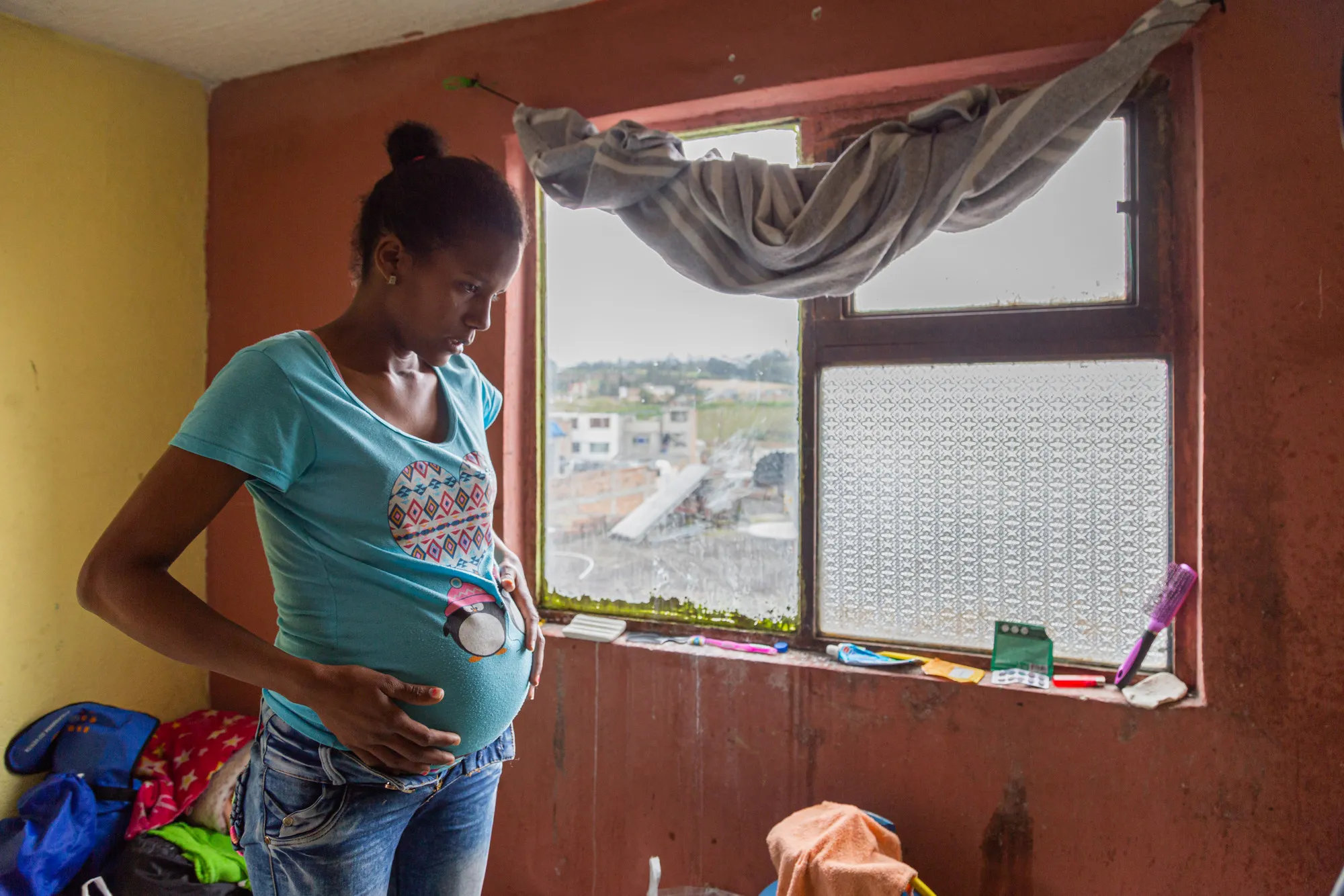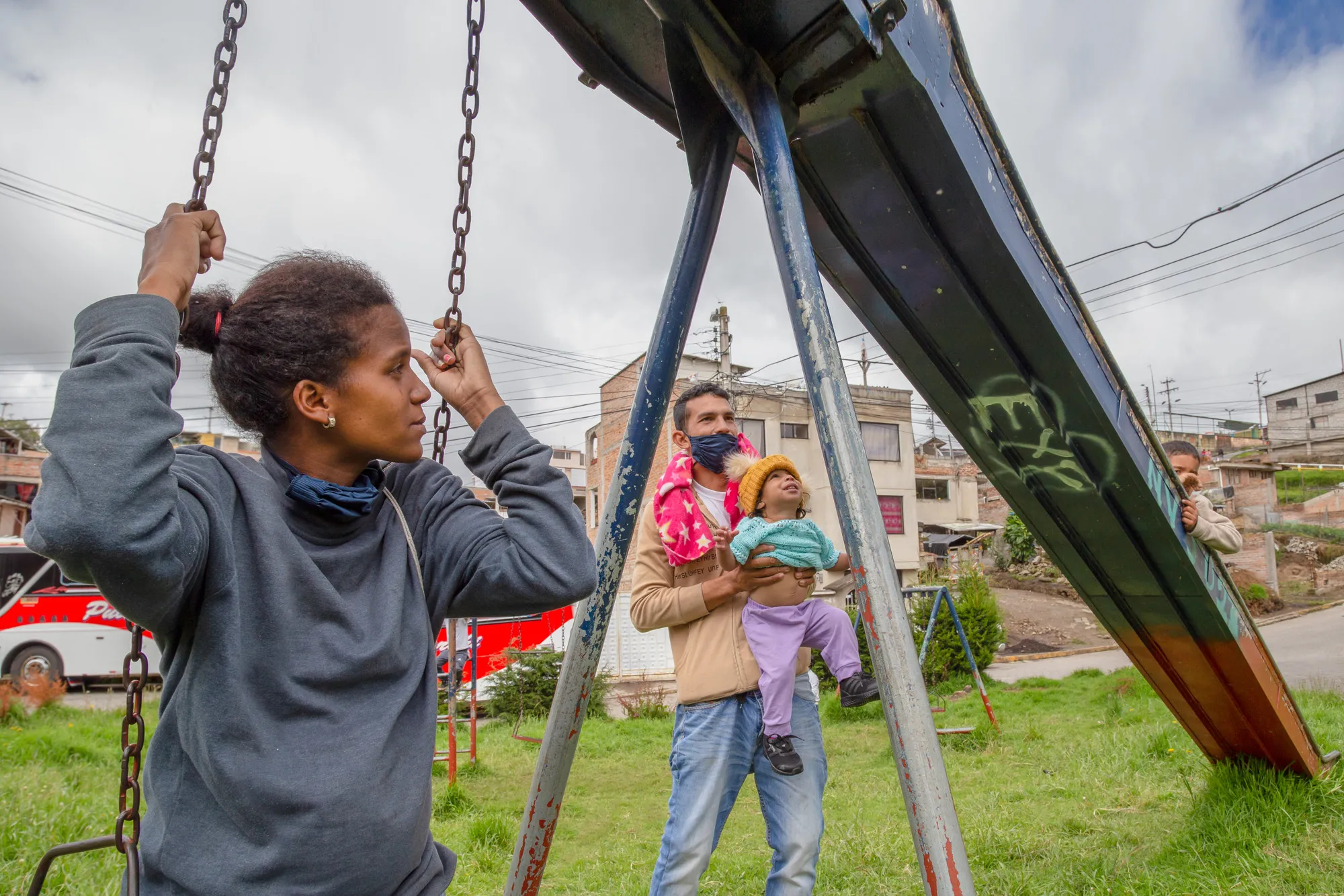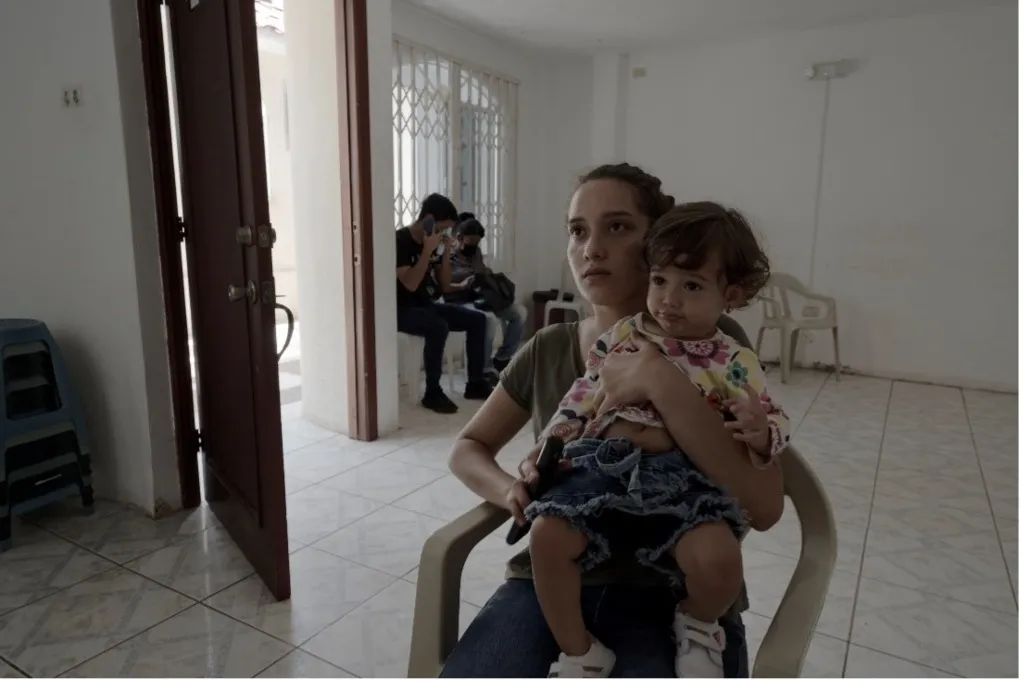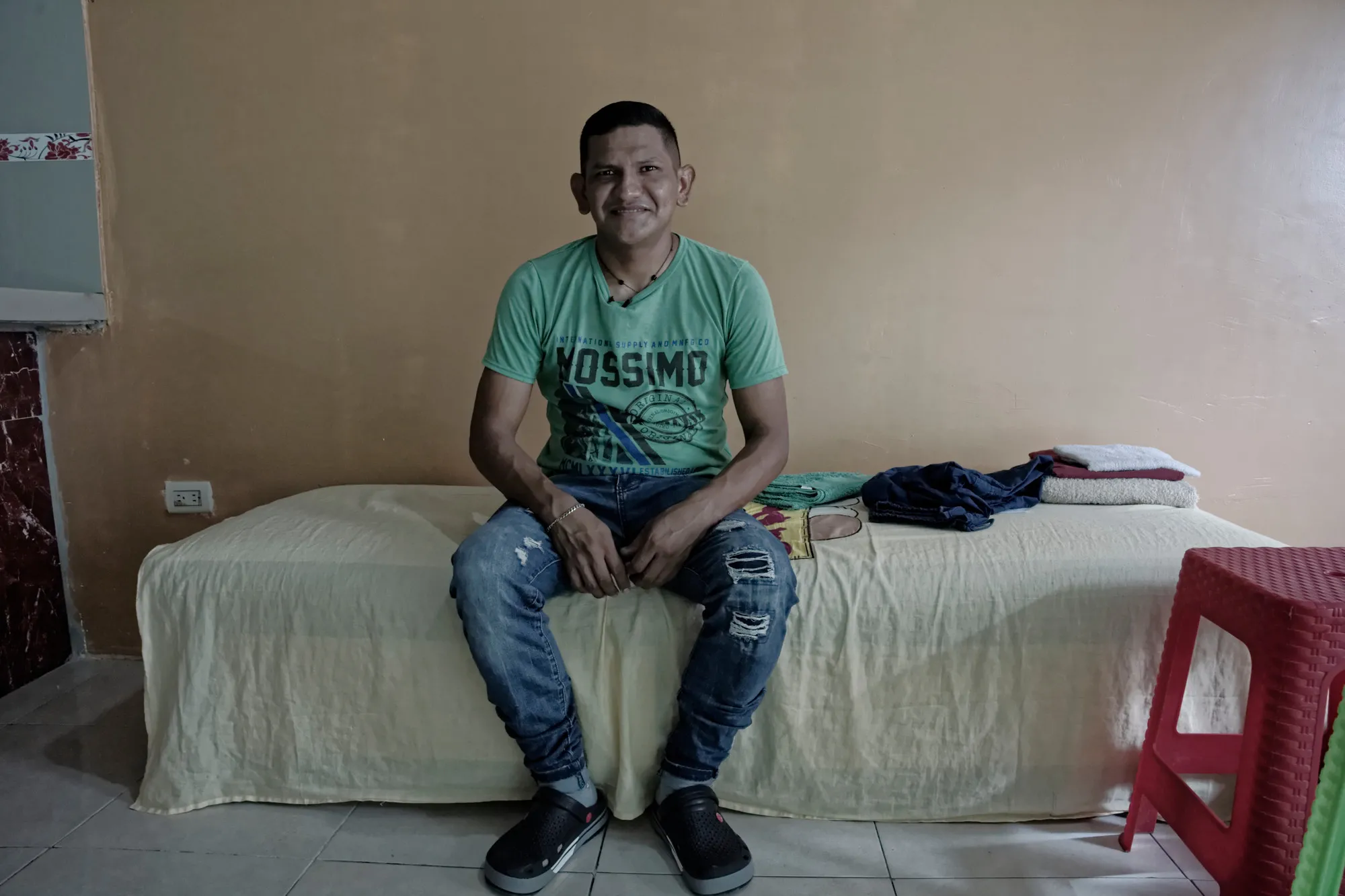Yannete, 25, was several months pregnant when she arrived in Ecuador on foot after a gruelling 10-day journey from Venezuela. She made the difficult decision to leave her home country because of the violence — she was shot several times in her neighborhood in los Llanos Venezolanos.
Juan, 31, arrived in Ecuador, also on foot, and alone with only a small backpack. He was forced to leave his home because the medicine he needed to treat a terminal illness was impossible to find in Venezuela due to drug shortages.
Desiré, 18, arrived in Ecuador with her one-and-a-half-year-old daughter Noa and spent four days living on the streets until they were able to find temporary shelter.
These are just three stories among thousands from Venezuelan migrants and refugees seeking a better life in Ecuador. According to the U.N., more than 500,000 Venezuelans are now living in Ecuador, half of whom need urgent access to housing.





